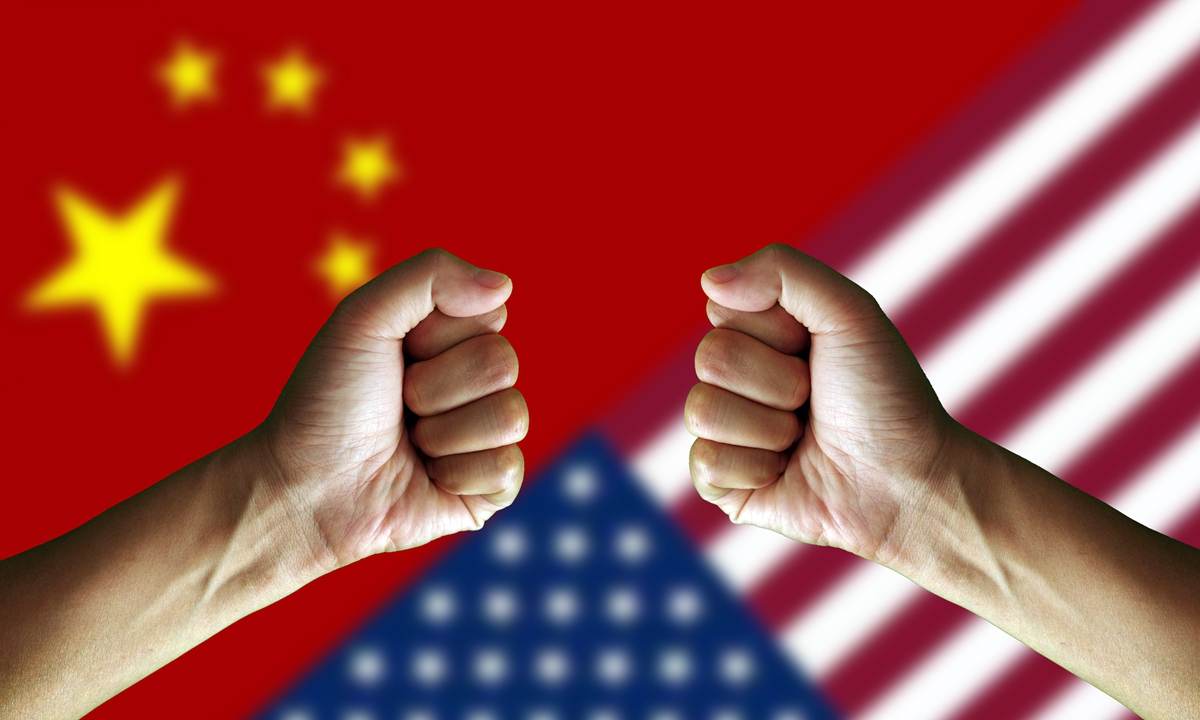
China US Photo: VCG
With the US attempting to ring-fence Chinese telecommunications technology, it has become more urgent than ever for China to break the blockade of West-led alliance in consolidating its role in network infrastructure.The US, Australia and Japan announced on Sunday their jointing funding of an undersea communication cable connecting three Pacific countries, Reuters reported.
While the latest funding commitment is a welcome development for Nauru, Kiribati and the Federated States of Micronesia, the move is widely seen as part of the Western allies' effort to counter rising Chinese influence in the region.
The irony is that a Chinese company's previous bid to contract laying undersea communication cables for the three Pacific countries appears to be real reason motivating the US to join with its allies on the project. Previously, the US government issued various warnings and a diplomatic note to Pacific nations expressing security concerns over the involvement of the Chinese company which eventually scuttled the project, according to Reuters in June.
It is no coincidence that the US and its allies announced funding commitment for an undersea cable project with similar route just six months after the original project fell over. Given its previous obstruction of the Chinese company, the latest development seems like more of compensation, rather than a genuine willingness to help the regional islands upgrade their network infrastructure. After all, the US and its allies have their own infrastructure problems domestically, therefore, it is highly questionable whether Pacific nations can actually rely on Western nations for their infrastructure needs.
This is not the first time the US has blocked Chinese companies from participating in the construction of overseas telecommunications projects, and it won't be the last time.
In fact, the US is now doing everything it can to block Chinese telecommunications companies from contributing to network infrastructure around the world, smearing Chinese companies over security concerns even though there is no evidence to support its claims. If anything, the US has roped in its allies to create political resistance to compress the room for Chinese companies to participate in the construction of global telecommunications networks. Under the cover of security, democracy, human rights and other ideological values, the US is roping in its allies and attempting to build a technology supply chain "democratic alliance." The US-led blockade requires vigilance and push-back. Because if Chinese technology and companies cannot go abroad, their competitiveness will weaken which will in turn hurt the country's influence in the technology arena.
Historically speaking, such kind of US-led "democratic alliance" is doomed to serve the interests of American corporations, with no regard to the value offered to developing nations. These so-called democratic coalitions have never really helped any developing country develop, with smaller nations ending up being the prey of those Western allies.
Therefore, efforts to break the supply chain alliance are urgently needed for the developing world. First, China needs to attach great importance to upgrading its future manufacturing development, while making adjustments based on real world conditions, especially the needs of the ASEAN manufacturing sectors, to extend the regional industrial chain. Providing necessary assistance in accordance with the development goals of different countries will also help achieve common development.
Second, China could build up its own infrastructure supply chain by consolidating development needs under the Regional Comprehensive Economic Partnership to boost cooperation among developing economies, which will also be conducive to fostering common development.
Third, while further pushing ahead with infrastructure projects under the Belt and Road Initiative, China needs to extend its manufacturing chain, helping countries along the route build up their manufacturing strength to better participate in global markets.
Fourth, China needs to continue expanding cooperation with smaller developing economies and extend our supply chains to these countries by adjusting supply chains which make up the Chinese manufacturing and consumption market.


